News
Prince Harry, Meghan to arrive Nigeria Friday
Published
11 months agoon
By
Ekwutos Blog
Barring any last minute change, the Duke and Duchess of Sussex Prince Harry and Meghan are billed to arrive in Nigeria on Friday.
Prince Harry and his wife Meghan will be in Nigeria for a three-day private visit following an invitation by the Chief of Defence Staff, Gen. Christopher Musa.
The Director of Sports, Defence Headquarters, DHQ, Air Vice Marshal Abidemi Marquis, said the founder of Invictus Games will spend three days in Nigeria and would interact with wounded soldiers and their families.
He said the visit scheduled from 10th to 13th May 2024 would help wounded soldiers in their recovery efforts.
Marquis said: “Because we realised that 80 per cent of our soldiers have been involved in this recovery programme, they are getting better.
“Their outlook on life is positive. You know, when you are engaged in, you experience a permanent disability, you know, issues, it affects your mental health and also your outlook on life.”
In April, the Nigerian Defence Headquarters had announced the visit of Megan and Prince Harry.
He said that the royal couple will be meeting with military personnel and will be hosted to different cultural activities during their visit in Nigeria.
You may like


When the Time Comes, We’ll Handle Wike… Azikwe used to say Surulere” — Ex-Governor Ada-George Drops Bombshell, Channels Azikiwe’s Spirit Amid Rivers Crisis


BREAKING: 8 Killed in Boko Haram IED Attack Along Maiduguri-Damboa Road


Isoko APC leaders decry marginalisation, seek commission’s MD
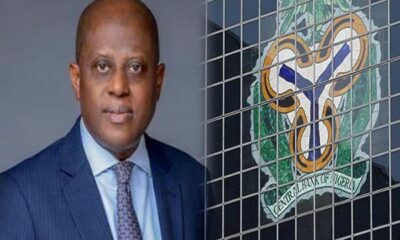

Sustaining monetary, fiscal policies for bank recapitalisation
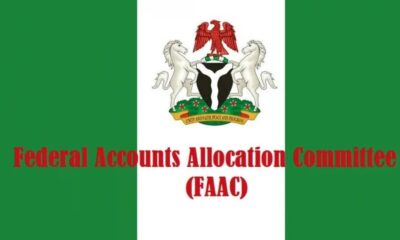

FAAC shares N1.58tr to FG, states, LGAs in March
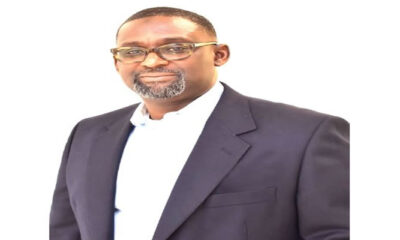

Why Nigeria’s maritime cadets still struggle with global certification – NSML MD
Business
Sustaining monetary, fiscal policies for bank recapitalisation
Published
4 hours agoon
April 17, 2025By
Ekwutos Blog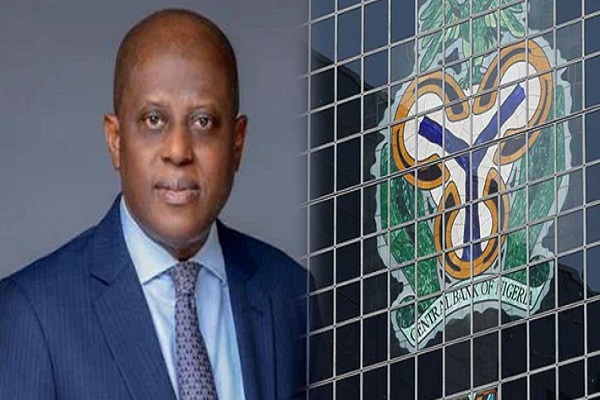
The emergence of stronger and bigger banks is one of the crucial benefits expected from the ongoing Central Bank of Nigeria (CBN)-led recapitalisation of banks. The apex bank believes that achieving sustainable economic growth requires strong support from the financial system. The financial sector regulator is, therefore, keen on aligning monetary and fiscal policies to achieve government’s vision of growth for businesses and $1 trillion economy size for the country, writes Assistant Editor, COLLINS NWEZE.
Aligning fiscal and monetary policy objectives comes with great benefits to the economy. The Central Bank of Nigeria (CBN) is at the centre of achieving fiscal and monetary policies collaboration and supporting the government’s plan for $1 trillion economy size.
For a government that wants to grow its economy to $1 trillion mark, the support of the financial services sector led by the Central Bank of Nigeria (CBN) Governor, Olayemi Cardoso is crucial.
The CBN boss had explained that bank recapitalisation ensures that lenders are well-capitalised, enabling them to take on greater risks, particularly in underserved markets. With stronger capital bases, banks can provide more loans and financial products to Micro Small and Medium Enterprises (MSMEs), rural communities and other vulnerable segments that have previously struggled to access formal financial services.
The CBN had, on March 28, 2024 announced a two-year bank recapitalisation exercise which commenced on April 1, 2024 and is expected to end on March 31, 2026.
The recapitalisation plan requires minimum capital of N500 billion, N200 billion and N50 billion for commercial banks with international, national and regional licenses respectively.
Others included merchant banks N50 billion; non-interest banks with national license N20 billion and non-interest banks with regional license will now have N10 billion minimum capital. The 24-month timeline for compliance ends on March 31, 2026.
Cardoso said the recapitalisation policy not only strengthens financial stability but also serves as a catalyst for inclusive growth.
“By enabling banks to extend more credit to MSMEs, we enhance job creation and productivity. Furthermore, with increased capital, banks can invest in technology and innovation, crucial for driving digital financial services such as mobile money and agent banking. These technologies are important to breaking down geographic and economic barriers, bringing financial services to even the most remote areas,” he stated.
He said Nigeria has what it takes to deepen financial inclusion and support the growth of business and economy. He said the recapitalisation exercise will also support the government’s efforts to achieve a $1 trillion economy.
The CBN further underscored the importance of banking recapitalisation as a major catalyst for the achievement of the $1 trillion economy agenda of the government.
Banking sector remains robust
Cardoso explained that the banking sector remains robust, with key indicators reflecting a resilient system.
“The non-performing loan ratio remains within the prudential benchmark of five per cent, showcasing strong credit risk management. The banking sector liquidity ratio comfortably exceeds the regulatory floor of 30 per cent, a level which ensures banks are maintaining adequate cash flow to meet the needs of customers and their operations. The recent stress test conducted also reaffirmed the continued strength of our banking system,” he said.
“I am pleased to note that a significant number of banks have raised the required capital through rights issues and public offerings well ahead of the 2026 deadline. I believe that the banking sector is in a strong position to support Nigeria’s economic recovery by enabling access to credit for MSMES and supporting investment in critical sectors of our economy,” he said.
The CBN Deputy Governor, Corporate Services, Ms. Emem Usoro, said the journey to a $1 trillion economy requires structured planning, clearly defined policies, unwavering implementation, and an inclusive approach that aligns public and private sector interests.
At the just-concluded seminar organised by the CBN for business editors and financial correspondents in Abuja, Usoro said that one of the key components of the $1 trillion ambition is the recapitalisation of Nigerian banks.
She noted that banks must be sufficiently capitalised to meet the financial demands of a larger and more dynamic economy.
“As we work towards building a $1 trillion dollar economy, we must consider the recapitalisation of our banks to be able to fund, finance and power the economy, and to favourably compete globally,” Usoro said.
She further called for a collective effort from all stakeholders, adding that the financial system must be prepared to play its role in powering development.
“We should particularly pay attention to bank recapitalisation to ensure that our banks are strong, resilient and stable enough to carry out financial intermediation, and the much-needed financing of development projects and programmes,” Usoro said.
The Group Managing Director of United Bank for Africa (UBA), Mr. Oliver Alawuba described the ongoing CBN bank recapitalisation policy as both timely and essential in positioning the financial system to meet the demands of a growing and globally competitive economy.
According to Alawuba, the initiative is expected to boost the resilience of the banking sector by strengthening its capacity to withstand economic shocks such as inflation, currency volatility and global geopolitical disruptions. He noted that the policy will also place Nigerian banks on a stronger footing to finance the country’s long-term economic transformation, including funding of large-scale infrastructure and industrial projects.
Alawuba further stressed that the recapitalisation policy goes beyond regulatory compliance. It is a forward-looking strategy aimed at equipping Nigerian banks to operate at the scale and sophistication required by a trillion-dollar economy. He said the move would enhance the sector’s ability to support traditional economic drivers such as oil and gas, agriculture and manufacturing, as well as emerging sectors such as fintech, green energy and infrastructure development.
“Nigerian banks need adequate capital buffers to meet the evolving demands of these sectors. Without this, the industry cannot effectively rise to the challenge,” he said.
Alawuba further pointed out the sharp contrast between Nigerian banks and their counterparts in more advanced economies, where bank assets typically range between 70 and 150 per cent of Gross Domestic Product (GDP). In Nigeria, bank assets accounted for just 11.97 per cent of GDP as of 2024, a gap he said must be addressed if the country’s financial system is to align with international standards.
He commended the CBN’s recent directive mandating a significant increase in minimum capital thresholds, describing it as recognition of the urgent need for stronger financial institutions capable of delivering on national priorities such as infrastructure expansion, digital transformation, inclusive financial services and economic diversification.
Alawuba concluded that a robust, well-capitalised banking sector is critical for Nigeria’s aspiration to become a one trillion-dollar economy, and the recapitalisation drive is a forward-looking step to achieve that goal.
According to the Director of the Banking Supervision Department at the CBN, Olubuka Akinwunmi provided insights into the state of the banking sector by stating that banks have so far remained within the prudential thresholds stipulated by the regulator, including benchmarks for capital adequacy ratio and non-performing loans.
“Currently, all our banks are still within the prudential thresholds that were set. And they are actively pursuing various recapitalisation efforts,” Akinwunmi said.
He said priority sectors such as agriculture, infrastructure and manufacturing are receiving attention from both the government and financial institutions, as they are crucial to achieving a trillion-dollar economy.
“This year’s national budget reflects a clear emphasis on critical sectors such as health, education, infrastructure and agriculture. Banks are taking cues from these priorities, recognising them as viable areas for business expansion,” Akinwunmi said.
On how many internationally-active banks had met the new N500 billion capital requirement, he noted that substantial progress has already been made.
“We are halfway through the journey in terms of timeline, and in terms of capital already raised; we are also halfway through. That is a positive signal,” he said.
He added that the decision to start the recapitalisation process early has helped insulate the financial system from emerging global and domestic shocks.
“The emerging global economic shifts and pressures were not lost on the management of the CBN. We started early. If we had waited till now, the challenges would have been greater. But we acted in time,” he stated.
Dr Akinwunmi expressed his confidence that the recapitalisation requirements will be met, stressing that existing shareholders’ funds continue to serve as a buffer. However, the CBN deliberately opted for fresh capital inflows, particularly from foreign investors who have shown renewed confidence in Nigeria’s financial system.
“International perception of Nigeria’s banking sector is improving. The reforms over the past year, especially around the foreign exchange regime and improved transparency regarding reserves, have improved investors’ confidence,” he said.
He cited recent disclosures on Nigeria’s net reserves and improvements in regulatory credibility as key factors that are reshaping the outlook for foreign direct investment in the banking sector.
On the Loan to Deposit Ratio (LDR), Akinwunmi explained that the current 50 per cent benchmark does not reflect a reluctance to lend but rather a contextual response to inflation and other macroeconomic challenges.
“As the macro-economic environment stabilises, banks will naturally increase lending. It’s a cautious approach to ensure that lending supports sustainable growth,” he said.
He also touched on the Cash Reserve Ratio (CRR), stating that there has been marked improvement in transparency. Banks now have a clearer understanding of CRR computations, unlike in the past, which enhances predictability and compliance.
On Small and Medium Enterprises (SME) funding, he confirmed that banks have continued to make provisions, but the CBN remains actively engaged to ensure proper disbursement and sectorial targeting. Supervisory oversight, he explained, is being deployed to verify compliance and effectiveness of disbursed funds.
On incentives, he said the most powerful incentive for banks lay in the opportunities provided by a growing economy.
“A stronger bank can take on big-ticket businesses, including infrastructure financing. The current reforms, such as the infrastructure concession plans, present viable business opportunities for well-capitalised banks,” Akinwunmi said.
The capital verification process, according to him, is thorough and designed to ensure that only legitimate, unborrowed funds are used for recapitalisation. An industry-wide tracking mechanism has been established to streamline verification across institutions and enhance collaboration.
“Our examiners follow each capital trail meticulously, moving from one bank to another as necessary. Even if it’s not your bank under verification at that moment, we expect full cooperation to trace the sources of capital,” he said.
On the broader question of resilience to global shocks, he maintained that Nigerian banks are being positioned to remain attractive to investors and capable of withstanding external disruptions.
“CBN is monitoring developments closely and adjusting where necessary. The recapitalisation process is not just about compliance — it’s about long-term stability, competitiveness and economic transformation,” he said.
News
FAAC shares N1.58tr to FG, states, LGAs in March
Published
4 hours agoon
April 17, 2025By
Ekwutos Blog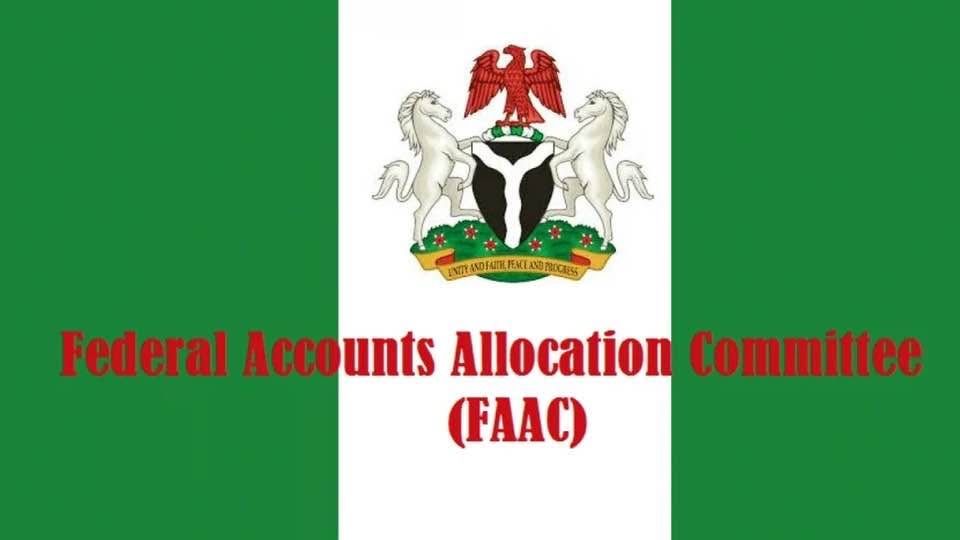
According to Ekwutosblog The Federation Account Allocation Committee (FAAC), at its April 2025 meeting chaired by the Honourable Minister of Finance and Coordinating Minister of the Economy, Wale Edun, shared a total sum of N1.578 Trillion to the three tiers of government as Federation Allocation for the month of March 2025 from a gross total of N2.411 Trillion.
From the stated amount inclusive of Gross Statutory Revenue, Value Added Tax (VAT), Electronic Money Transfer Levy (EMTL) and Exchange Difference, the Federal Government received N528.696 Billion, the States received N530.448 Billion, the Local Government Councils got N387.002 Billion, while the Oil Producing States received N132.611 Billion as Derivation, (13% of Mineral Revenue).
The sum of N85.376 Billion was given for the cost of collection, while N747.180 Billion was allocated for Transfers Intervention and Refunds.
Source: PRNigeria
News
Alleged defamation: Yahaya Bello petitions IGP, demands prosecution of Sen Natasha
Published
4 hours agoon
April 17, 2025By
Ekwutos Blog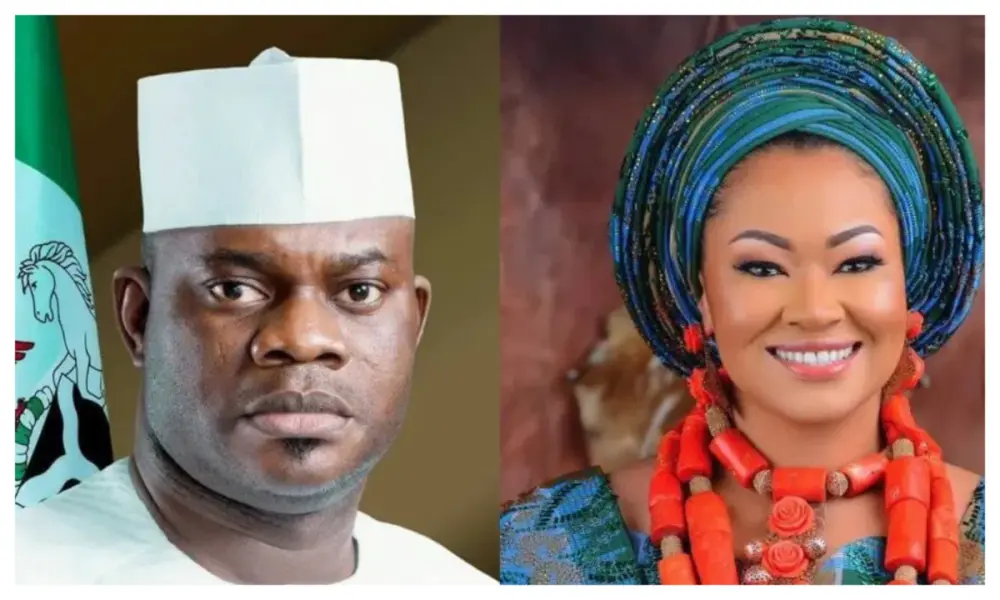
Former Governor of Kogi State, Yahaya Bello, has petitioned the Inspector General of Police (IGP) over alleged defamatory statements made against him by the suspended senator representing Kogi Central Senatorial District in the National Assembly, Natasha Akpoti-Uduaghan.
In the petition, written and signed by his solicitor, Mr. N.A. Abubakar Esq, to the IGP on Wednesday, Bello called on the Nigeria Police Force to invite Akpoti-Uduaghan to substantiate her allegations against him with credible evidence.
“Where she fails to do so, cause her to be arrested and prosecuted in accordance with the provisions of the law for criminal defamation, inciting public disturbance and spreading false information injurious to public peace,” the lawyer wrote.
The petition said the utterances made against the former governor were not only false, reckless and inciting, but “they constitute serious criminal defamation, false accusation and incitement to public disorder, all of which are offences under the Nigerian law”.
The former governor has also written to Akpoti-Uduaghan, through his counsels, Chief R.O. Balogun, SAN & Co, demanding retraction and public apology over defamatory statements made against him in two national dailies, or face legal consequences.
“Our client’s attention has been drawn to a most disturbing, damaging and criminally defamatory statement made by Senator Natasha Akpoti-Uduaghan, representing Kogi Central Senatorial District, during her public address at a political event tagged ‘Homecoming Rally’ held on Tuesday, April 1, 2025, in Okehi LGA of Kogi State.
“That while addressing attendees at the rally, Senator Akpoti-Uduaghan falsely and maliciously uttered the following words in reference to our client: ‘(Senate President Godswill) Akpabio sent for Yahaya Bello. And it was actually Senator Asuquo from Cross River that drove Yahaya Bello from Hilton Hotel.
“I was informed of everything and what I got to know of the meeting was in two folds. He told him to commence my recall and that he was going to fund it – of course, monies changed hands that night.
“The second thing he told him was that he should try and kill me. I didn’t make this public, but I wrote to the IG of Police. Akpabio told Yahaya Bello. He told him that he should make sure that killing me does not happen in Abuja, that it should be done here, so it would seem as if it’s the people that killed me here …’
“That these utterances are not only false, reckless and inciting, but they constitute serious criminal defamation, false accusation and incitement to public disorder, all of which are offences under Nigerian law,” Bello’s lawyer, Abubakar, wrote in the petition to the IGP.
He said Section 24(1)(b) of the Cybercrimes (Prohibition, Prevention, Etc.) Act, 2015, penalises a person who knowingly or intentionally sends false messages or information through a computer or network likely to cause harm to the reputation of another person.
He added that, in Akpoti-Uduaghan’s case, she caused videos of her statement to be widely circulated online where it has continued to trend till date with the clear intention of causing harm to the reputation of the former governor against Sections 114 and 140 of the Penal Code (applicable in Northern Nigeria) – which criminalises giving false information with intent to mislead public officers or the public.
“By accusing our client of plotting an assassination and naming him as a co-conspirator in a purported murder plot (with an attempt to disguise the killing as mob or ethnic violence), Sen. Akpoti-Uduaghan has:
“Gravely damaged our client’s reputation by portraying him as a violent and vengeful political actor and misled the public and tried to incite ethnic and political distrust, especially among clans of Ebiraland in particular and the people of Kogi Central in general.
“Brought his name into disrepute on the basis of an allegation so weighty that, if left unchallenged, could harm his political career and personal safety; and abused her parliamentary status and platform by propagating such falsehoods without evidence, in a very public and politically charged setting,” the solicitor said.
He added, “Our client states that he has long considered Natasha Akpoti-Uduaghan as unhinged and apparently possessed of a schizophrenic disorder, characterized by manic narcissism, wild hallucinations, delusions, disorganized thinking and an incurable incontinence with emotions and social interactions – hence his patient indulgence of her in the past while he was Governor in Kogi State when he restrained himself many times from seeking legal redress even though she frequently harassed him in the media with all sorts of horrible and damaging lies.
“Our client, however, asserts that he has long ended his stewardship of Kogi State as Governor and moved on to other pursuits – and that he no longer feels the same duty of paternalistic indulgence which he had for all Kogites as his citizens while in Office, and still exhibits till today, hence his insistence on full redress for her (Akpoti-Uduaghan’s) current accusations which, as usual, are totally fabricated and utterly baseless.”
He urged the IGP to expedite action on the petition, stating that “failure to act in the circumstances of these egregious offences by Mrs. Akpoti-Uduaghan will embolden others to also weaponise political platforms for dangerous falsehoods and criminal misrepresentation, especially with an eye to gaining dishonest advantage over opponents, thus endangering our democracy.”
According to him, this is necessary “to preserve public order, safeguard the integrity of public discourse and protect innocent persons from targeted smear campaigns that can endanger lives or destabilise the peace of the state and nation.”
Bello’s lawyers, led by Chief R.O. Balogun, SAN, in a separate letter written to the embattled senator said, “We hereby demand, on behalf of our client, the following:
“That you issue a formal retraction of the said defamatory statements, to be published in two national dailies.
“That you cease and desist from making any further defamatory statements concerning him, whether directly or by innuendo, and whether published in print, electronic or social media platforms.
“That you comply in terms of the foregoing within Fourteen days of the service of this letter on you.
“TAKE NOTICE that failure, refusal or neglect to comply with the above demands within the period of FOURTEEN DAYS (14) from the date this Letter is served on you, our client will set the necessary machinery in motion to initiate both civil and criminal proceedings against you without further notice.”

When the Time Comes, We’ll Handle Wike… Azikwe used to say Surulere” — Ex-Governor Ada-George Drops Bombshell, Channels Azikiwe’s Spirit Amid Rivers Crisis

BREAKING: 8 Killed in Boko Haram IED Attack Along Maiduguri-Damboa Road

Isoko APC leaders decry marginalisation, seek commission’s MD
Trending

 Trending6 months ago
Trending6 months agoNYA demands release of ‘abducted’ Imo chairman, preaches good governance
- Business6 months ago
US court acquits Air Peace boss, slams Mayfield $4000 fine

 Politics6 months ago
Politics6 months agoMexico’s new president causes concern just weeks before the US elections
- Entertainment6 months ago
Bobrisky transferred from Immigration to FCID, spends night behind bars
- Entertainment6 months ago
Bobrisky falls ill in police custody, rushed to hospital

 Politics6 months ago
Politics6 months agoRussia bans imports of agro-products from Kazakhstan after refusal to join BRICS

 Politics6 months ago
Politics6 months agoPutin invites 20 world leaders
- Politics1 year ago
Nigerian Senate passes Bill seeking the establishment of the South East Development Commission.

